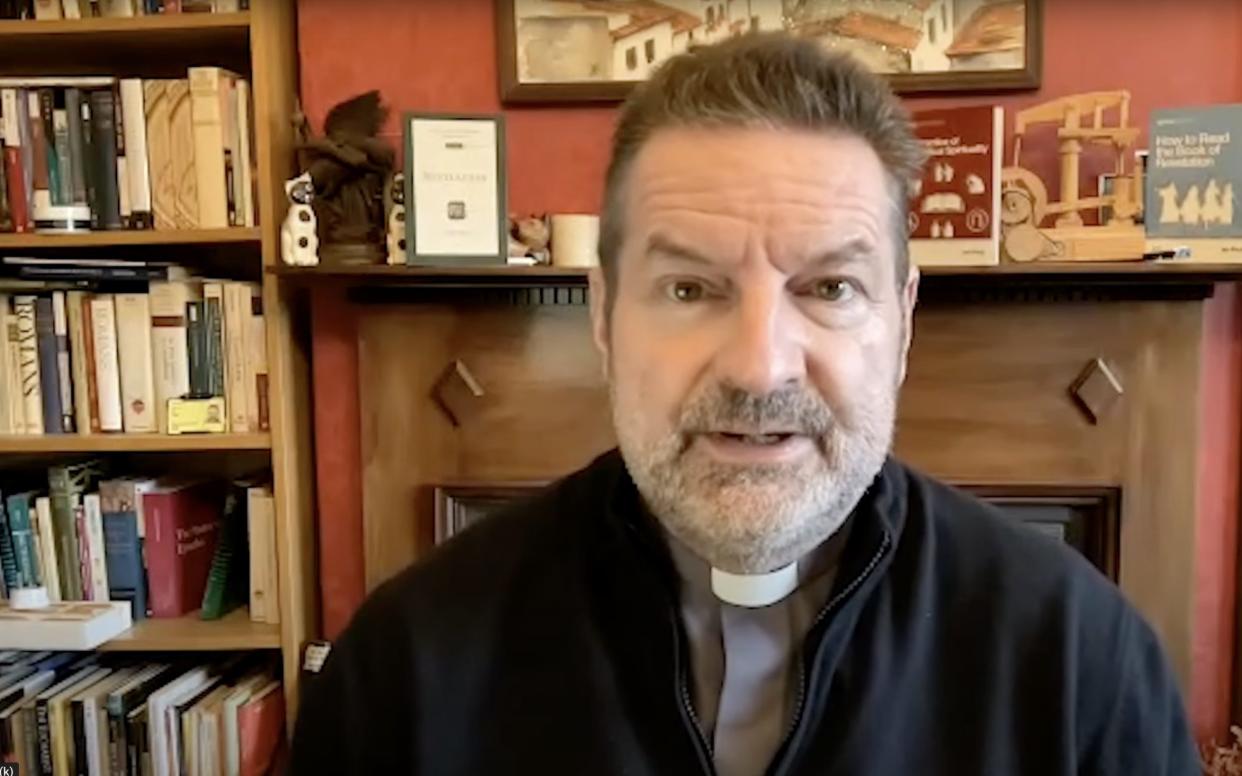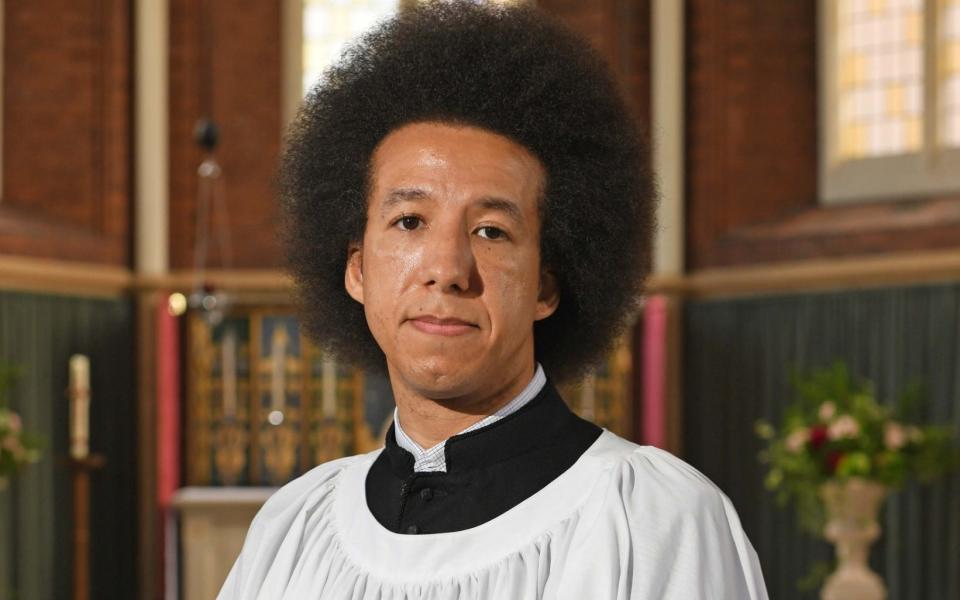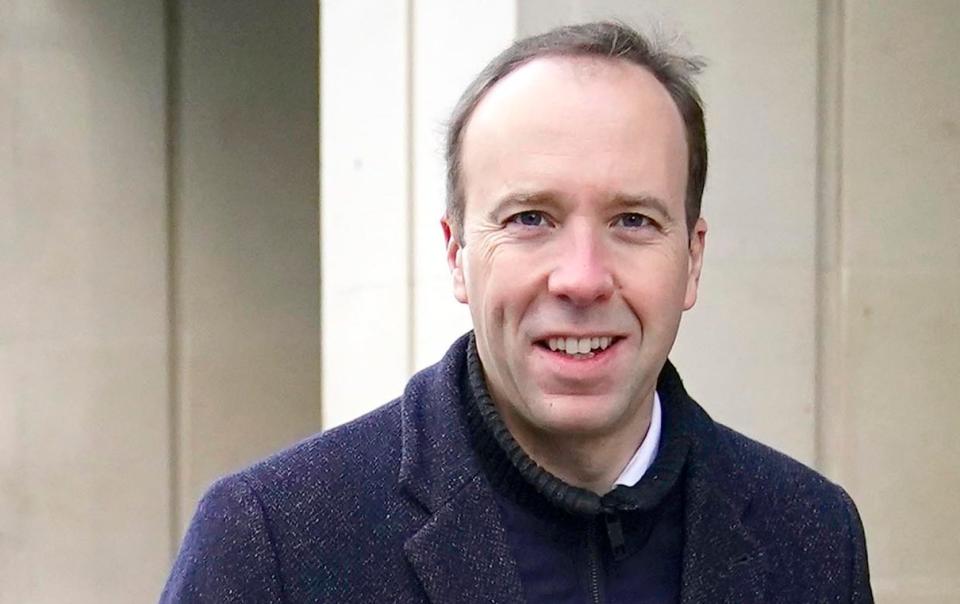Secular push for gay marriage among clergy is like Nazi Germany, says leading churchman

Allowing gay clergy to marry would amount to state interference in religion reminiscent of Nazi Germany, a leading Church of England figure has said.
At an Oxford Union debate on Thursday, the Rev Ian Paul, a member of the Archbishops’ Council, argued that those supporting same-sex unions within the Church were allowing the views of the state to ride roughshod over religious teachings.
His comments were challenged by three bishops as well as Matt Hancock, who made an unexpected appearance during the two-hour-long debate.
Dr Paul, a General Synod member, told students that allowing same-sex marriage would be a “clear contravention of God’s word”.
Addressing a motion on whether gay clergy should be able to marry, entitled "This House supports same-sex marriage in the Church", he said that supporting the proposal was “voting for a church which detaches itself from the clear and consistent teachings of Jesus”.
He added: "If you vote for this motion you are, as a non-religious group, assuming secular authority can determine religious belief.
“You wouldn’t be alone in that, it was true in Nazi Germany, it was true in the Soviet Union. And true today in China and Iran and North Korea”.
Calvin Robinson, an evangelical Anglican deacon and TV presenter for GB News, echoed his comments, saying: “2,000 years of Christian doctrine cannot be altered on the whim of a few bishops."
“What is God-ordained cannot be adjusted to suit our new liberal progressive views. Marriage is heterosexual, monogamous and should be open to the possibility of children,” he said.

However, Rev Martin Gorick, the Bishop of Dudley, said: "We need to look deeper into the scripture. It's not good for man to be alone; it says that right at the beginning of Genesis.
“Homosexual men and women have been told too long by the church they have no choice. We need to think very seriously before denying life, we need to think seriously before denying the reality of love."
Mr Hancock, who had given an earlier union address to students about his political career and appearance on I'm A Celebrity Get Me Out of Here, joined the bishop in condemning Dr Paul’s comments.
Taking to the stand, he said: “I was moved to speak because having heard the debate today it is clear that on practical grounds, on the grounds of leadership that is needed in our society today and on ethical moral grounds, this house must support this motion.
“I am probably unusual in this room because I have been to a same sex marriage in an Anglican church. We had to pretend it wasn’t an actual marriage.
“I’ve never heard a motion that is worth supporting where the opposition cites Nazi Germany."

The debate came after Church of England bishops rejected calls to allow same-sex marriages in churches at a meeting in January, following six years of debate and consultation.
Instead, they agreed to offer blessings after a civil partnership or marriage.
The decision prompted a backlash from equality campaigners, some of whom accused the church of discrimination and it comes amid heightened tensions and divisions within the Church of England.
The bishops’ proposals about same-sex marriage will be debated at the General Synod, the Church’s legislative body, next week.
The Archbishop of Canterbury, the Most Rev Justin Welby, revealed last month that he would not personally bless gay marriages so as to remain a figure of “unity” for the worldwide Anglican Communion and conservative Christians within it.
In contrast, the Archbishop of York, the Most Rev Stephen Cottrell, and the Church of England’s second most senior cleric, said he would.
In November the Bishop of Oxford, the Rt Rev Steven Croft became the most senior Church of England cleric to call for a break with tradition in support of same-sex marriage.
His landmark declaration, which broke ranks with the Church’s stance on the issue, triggered a wave of other bishops to come forward and say that they agreed with his views.

 Yahoo Movies
Yahoo Movies 
